|
|
|
|
Spring 2016 | Issue #6
IN FOCUS: the Faculty of Arts & Science Newsletter
Wednesday, January 13, 2016
|
|
|
From the Dean
|
 |
| |
"Education is what is left over after all that has been learnt is forgotten." James Bryant Conant
Happy New Year. For those who have read my emails (and chosen not to ignore them), you will recognize the quote from Harvard President James Bryant Conant. The image, though some might think so, is not of me but a bust of the famous Athenian statesman and orator, Demosthenes. This promises to be a busy semester. If all goes well, we hope to break ground in May on the New Science and Academic Building; there is still a lot of work that needs to be done leading up to that event. The Research Office begins work on their new Strategic Research Plan, and Arts and Science begins work on its own Academic Planning exercise, the results of which I hope will guide us strategically over the next five years. In December, I provided the Dean’s Advisory Committee (DAC) with an Environmental Scan, which provides a snapshot of where we were at as a Faculty in 2014, as we moved into this academic
year. I hope it represents an honest assessment of who we are and what are the challenges that we face together as a Faculty. As Jim Collin’s notes in chapter 4 of his book Good to Great, successful organizations, which move from being simply good to great, conduct autopsies without casting blame and allow the truth to be spoken. What I hope follows is a thoughtful, open discussion, a series of autopsies around the areas of Teaching, Undergraduate Programing, Graduate Programming, Indigenization, Research, and Outreach, which can inform our Academic Plan and provide a strategic path forward.
In Issue #3 of the Newsletter, I referred to Derek Bok’s book, Higher Education in America (Princeton and Oxford, 2013) and the challenges which comprehensive universities have with multiple and sometimes competing mandates (research vs teaching; graduate vs. undergraduate programming) that can work at cross-purposes to one another if institutions are not careful. In that same column I also referred to Jim Collins’ Good to Great: why some companies make the leap and others don’t
(New York 2001), which describes how some organizations moved from being simply good to great by being singularly focused on what they can do best. The question for me is what should be our focus as a Faculty, which will make us great and distinguish us from other institutions in the province, without falling into the danger of unfocused “mission creep” that comes when smaller comprehensive universities try to imitate the “bigger and better”. As I noted, we often talk about being a comprehensive university founded on the principles of Liberal Education. Perhaps this should be our singular focus, but I am not sure we know or have even articulated what that really means. I hope through our Academic Planning exercise we gain a greater sense of what that means for us as a Faculty.
I refer you to C.M Christensen and H.J Eyring, The Innovative University: Changing the DNA of Higher Education from the Inside Out (San Francisco, 2011). In particular, I have become fascinated with Harvard and how it has shaped our vision of higher education, particularly its drive to become bigger and better, “everything at its best”, as President Eliot envisioned Harvard. Many of the things, which we have come to associate with modern universities, both good and bad, have either been innovations or practices adopted by Harvard. The Innovative University
traces the history of Harvard and Rick’s College, which later became BYU- Idaho, and what shaped their respective DNAs. It is a fascinating read. The last section of the book, “Genetic Reengineering”, speaks among other things about the dangers of imitating the “bigger-and-better” schools and the need to make firm choices as to what an institution will and will not do. This is the purpose of Academic Planning.
As we move forward with our Academic Planning exercise there is of course plenty of uncertainty. Oil prices are now at new lows and promise to remain there for the near and mid-term. What impact that will have on government support for Post-Secondary Education remains to be seen. Tuition is frozen for at least another year and there is no clarity around what the tuition framework might look like beyond 2017. Modest government grant increases, though welcome, do not keep up with institutional inflation. Stagnant tuition increases, coupled with very little new money from government, mixed with increasing demographic challenges, make for a perfect storm. The question is how will we, as a Faculty and an institution, respond to this potential storm to protect ourselves and open up new opportunities for learning, and begin to make that move to becoming great? The Environmental Scan
identifies a number of challenges we face in terms of uneven enrollment growth between Sciences and Arts, capacity issues both at the undergraduate and graduate level, student retention, and engagement at first year. For me, as we move through the Academic Planning exercise, everything should be up for review: how we deliver our courses and what kind of courses we offer; are there things we can do at first year that can improve our retention and provide a more engaging learning experience for our students. And how do we do this in an environment of constraint. Even though we face these challenges and constraints, what changes can we adopt, which in the long term will make the faculty more dynamic, improve the quality of our teaching and research, and broaden our reach? In the end it will be about strategic priorities.
I have been at administration for some time now (I hope I don’t look too long in the tooth, the bust might be an appropriate likeness after all), at three different institutions, and although there are cultural differences, there are commonalities. All were relatively young institutions. My last institution in particular I felt a pronounced contradiction: though it is a young institution, it felt and acted old, I thought. Often as universities, we are adverse to risk, slow to change (I am equally to blame as my approach has always been incremental), and often think of education in certain restrictive terms. In part, I think this comes from the fact that we all have come from large institutions and feel, if indeed we are to be successful as a “real” university, we must imitate those “bigger-and-better” institutions and the way they do university: we must,
by default, have more graduate programs; we must, by default, emphasize research at the expense of teaching; teaching innovation and teaching excellence are not as highly valued. But the danger in trying to imitate these “bigger-and-better” institutions, is, as I have said before, we only become pale imitations, doing nothing really well, when in fact we have the potential and all the ingredients to become the best institution in the province in terms of the kind undergraduate programming we offer, the kind of graduate programming we support and the kind of research we produce. Often these are seen or presented as competing agendas, where support for one must come at the expense of the other. But that should not be the case. Whatever we do in terms of expanding our graduate programming and research must not, I hope, come at the expense of our undergraduate programming, but
done purposefully to enhance it, as undergraduate education maybe one area, where we can distinguish and differentiate ourselves from the other “big” comprehensive universities in the province. But it is not enough to say we offer small classes or will have first year seminars: even the “bigger-and-better” universities are doing that. There must be other things as well that uniquely define us, if we are to “sell” ourselves as the best comprehensive university in the province.
As the authors of The Innovative University note “competitive success requires being different, making unique choices about what an organization will and will not do” (345). It means adopting “a strategy that transcends Harvard imitation”, not necessarily by “forgo[ing] “graduate programs and discovery research”, but by “step[ping] off the traditional ladder in defining themselves” and by “thinking about what they do, not solely in terms of the course taken by Harvard” and other bigger-and-better universities (345). I conclude with some thoughts about Liberal Education, Summer Session and Our Reach.
Liberal Education: Though Harvard was not the first to require distribution requirements or general education courses, it was the first to combine distribution and concentration requirements, which are now standard at universities. When President Lowell introduced this innovation, what he envisioned were distribution courses that would provide “a true synthesis of a subject rather than merely laying the foundation for further study” (Innovative University, 88). What he got instead were basic introductory courses that were discipline specific, which could serve both as the building blocks for further disciplinary study and in a real pinch as distribution requirements. So for instance, though Intro Chemistry provides the foundational basis to move on in the discipline, it does little, however, to locate it among other disciplines and help a student understand
science as a whole. It perhaps does not help a humanities student understand the discourse of science. (Sorry for picking on Chemistry, but that was the example in the book.) But this criticism is not restricted to science. When I taught Intro Classical Civilization I rarely thought about Classics within the broader context of the Humanities, when I should have, as Classics is really all about the Humanities, but my hesitancy reflects perhaps my own shortcomings as a teacher. Such synthesis is challenging and requires gifted teachers. And here, I would argue, our most outstanding and innovative teaching should be directed at first year, general education and service courses.
Summer Session: Perhaps it is time to rethink Summer Session so that we are more intentional about what we offer and how we offer what we do. Does there need to be a full rethink? Perhaps we should consider Summer Institutes, thematic in nature, around which two or three courses are organized, that target a variety of audiences, with different credit options: audit. And this idea leads to my final thought: Our Reach.
If demographics are working against us, how do we broaden our reach to target new audiences? Indiana Wesleyan, for instance, has 3,200 residential students, but has 12,000 adult learners at regional centers. John Hopkins has 5,800 undergraduates but derives 29% of its tuition revenue from adult-focused programs. Both of these elite universities have broadened their reach to preserve their core. But to do this means thinking about higher education differently. It might mean unbundling the degree to offer courses or a series of courses that do not necessarily lead to a degree but could appeal to different audiences than our traditional 18-24 year olds. It might mean offering professional development courses within that mix. It might mean unbundling the classroom so we are not always tied to our traditional pedagogical models and/or modes of delivery. By being innovative in this way
we will reach an audience who might not otherwise attend university. So are there ways in which we can unbundle both the degree and the classroom to meet the needs of non-traditional students?
Whatever strategic priorities we set for ourselves, I am pragmatic enough to know that things take time and finances constrain and limit our best efforts. But I want the Academic Planning exercise to release us to blue sky, but not to think simply about being “bigger-and-better” but what it means to be the “best” without necessarily always being bigger. As always my eye is on a higher prize: preserving and enhancing Liberal Education, which is the foundation of this institution, and can have a profoundly transformative effect on the lives of students. As they journey into new areas of enquiry and learning, they discover themselves and in turn are transformed into thoughtful citizens: “what is left over after all that has been learnt is forgotten”.
Craig Cooper
Dean, Arts & Science
Go To Top
|
|
|
Community Outreach
PUBlic Professor Series 2015-2016
The PUBlic Professor Series is back for the New Year! The upcoming lectures are sure to be thought-provoking and encourage open conversation. No matter what, there will be something for everyone. See the lineup below.
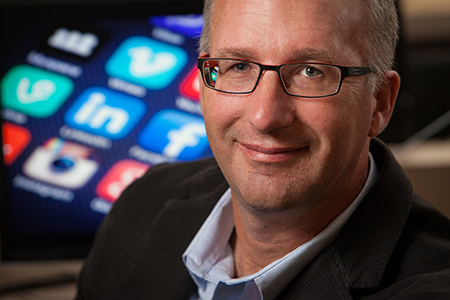 January 21, 2016 January 21, 2016
Dr. Harold Jansen, Political Science
The Impact of Digital Technology on Democratic Citizenship in Canada
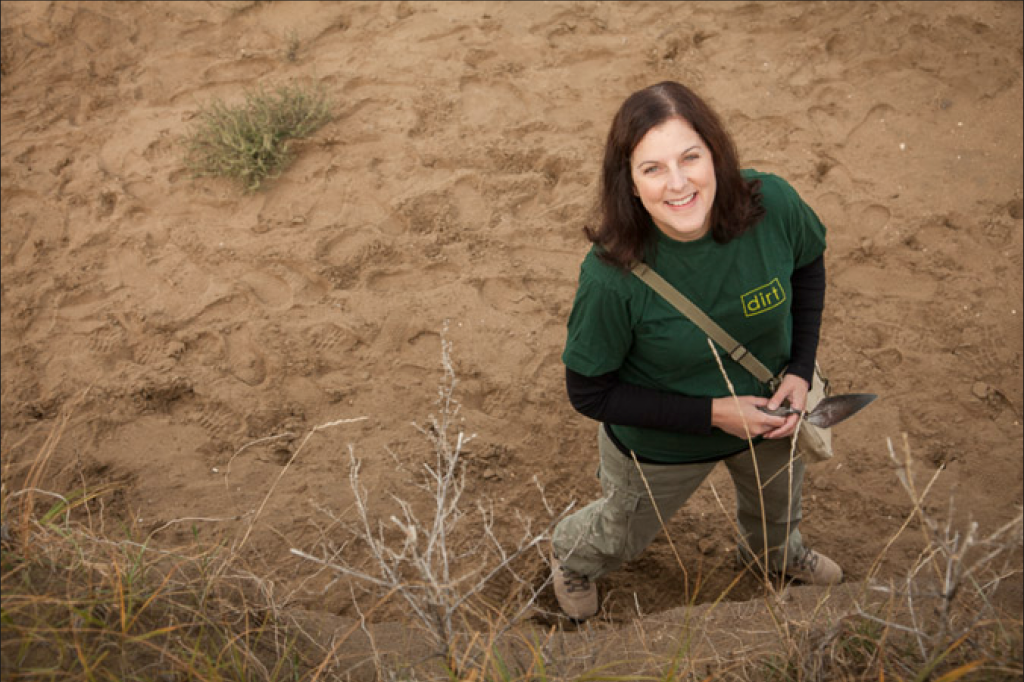 February 25, 2016 February 25, 2016
Dr. Shawn Bubel, Archaeology
Prehistoric Bison Hunters in Southern Alberta: Excavations at the Fincastle Site
 March 17, 2016 March 17, 2016
Dr. Reg Bibby, Sociology
Beyond the Gods & Back: The Return of Religion in Canada
If you missed a talk, or just want to hear it again, you can visit After The Talk, where you will find videos for each of our PUBlic Professor lectures. Research stories from each lecture can also be found below:
Sign-up for the mailing list and never miss a thing!
Owen G. Holmes Lecture Series
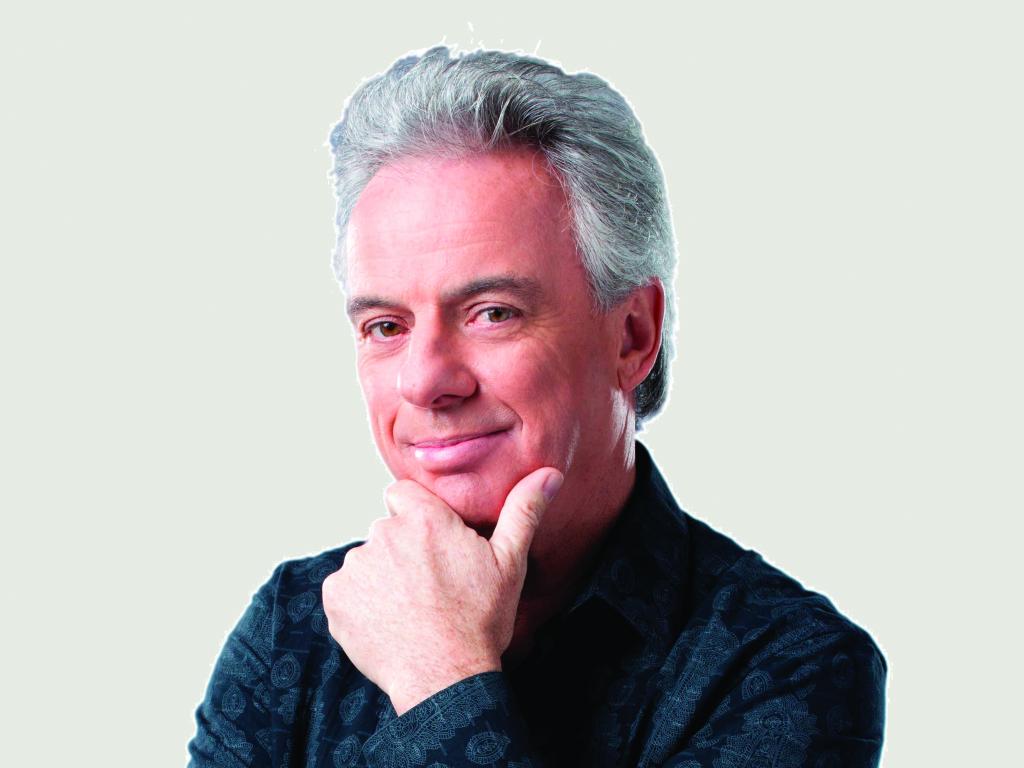 As part of the Owen G. Holmes Lecture Series, the Faculty of Arts & Science is proud to host Bob McDonald, host of CBC's Quirks and Quarks. This award-winning science program is heard by over 500,000 people each week and he will be on campus Monday, February 8, 2015 from 7-9 in PE250
with a Q&A to follow. This is a free event, but space is limited so arrive early! For complete details, visit the website. As part of the Owen G. Holmes Lecture Series, the Faculty of Arts & Science is proud to host Bob McDonald, host of CBC's Quirks and Quarks. This award-winning science program is heard by over 500,000 people each week and he will be on campus Monday, February 8, 2015 from 7-9 in PE250
with a Q&A to follow. This is a free event, but space is limited so arrive early! For complete details, visit the website.
Jan 27, 2016 Dr. Abdi Kazemipur | "Adjust the Mirrors and Turn on the Headlights: Revisiting the Current Debates on Muslims"
Dr. Abdie Kazemipur will discuss "Adjust the Mirrors and Turn on the Headlights: Revisiting the Current Debates on Muslims" on Wednesday, January 27 from 7-9pm in the Theatre Gallery of the Lethbridge Public Library. Dr. Kazemipur was a recipient of the John Porter Tradition of Excellence Book Award for his recent book The Muslim Question in Canada: A Story of Segmented Integration. For more details, visit the website.
Notable Mentions
January 11, 2016 | 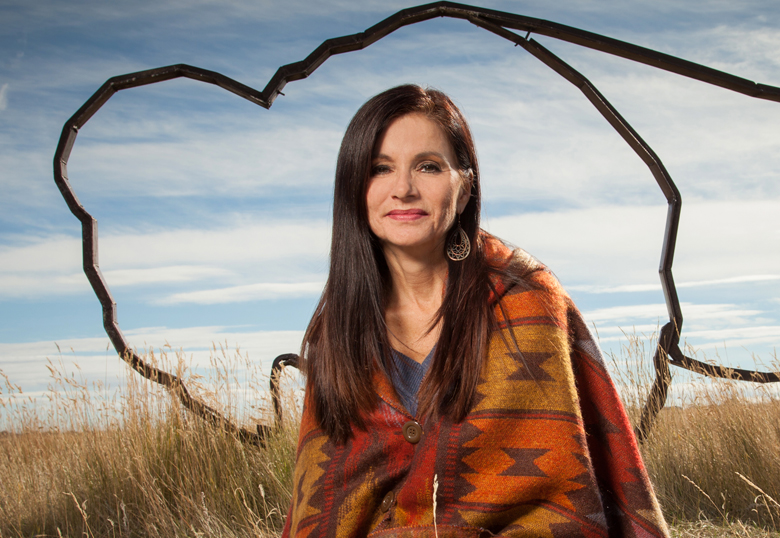 Dreamweaver - Hogue connects history and heritage to new futures for Aboriginal learners Dreamweaver - Hogue connects history and heritage to new futures for Aboriginal learners
Dr. Michelle Hogue has dedicated much of her career to creating new possibilities for Aboriginal students
December 17, 2015 | 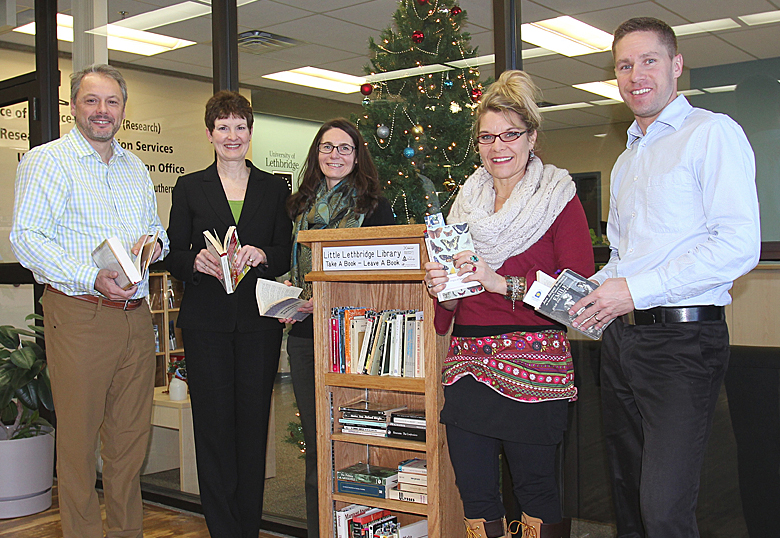 University of Lethbridge joins the Little Lethbridge Library movement University of Lethbridge joins the Little Lethbridge Library movement
U of L little libraries promote reading through the 'Take a book, leave a book' movement
December 8, 2015 | 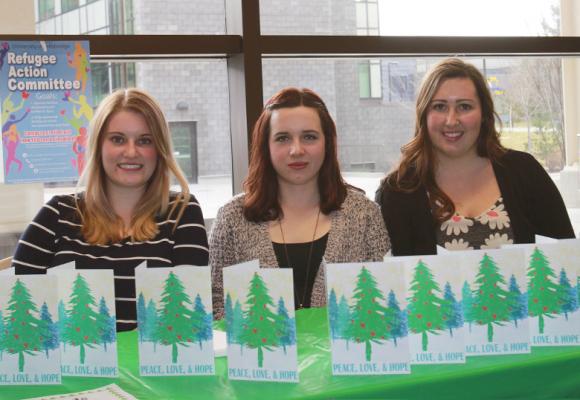 U of L committee’s fundraising efforts to help Syrian refugees garner wide support U of L committee’s fundraising efforts to help Syrian refugees garner wide support
Students, staff and faculty have thrown their support behind the U of L Refugee Action committee's efforts to bring a Syrian refugee family to Lethbridge.
December 7, 2015 | 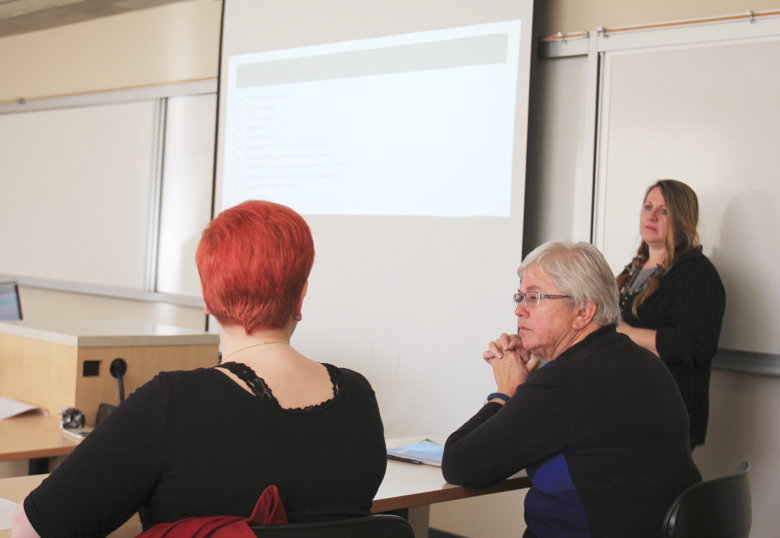 Taking learning outside the classroom Taking learning outside the classroom
Students enrolled in Dr. Jennifer Mather’s Psychology 4550 class took their learning outside the classroom with a unique project to understand the nature of community for people with schizophrenia.
November 27, 2015 | 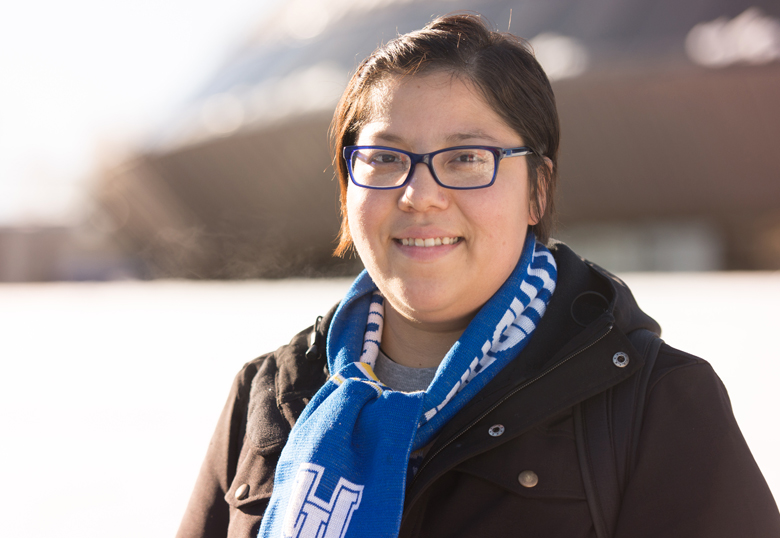 Scholarships create opportunity for Provost to make lasting impact Scholarships create opportunity for Provost to make lasting impact
Second-year student Trishell Provost dreams of engaging youth in physical activity on the Piikani First Nation
November 24, 2015 | Dual credit initiative introduces high school students to university coursework
Local high school students are earning university credits through Liberal Education course.
November 6, 2015 | University and college collaborate to further agricultural programming in southern Alberta
The agreement includes the development of the Centre for Agricultural Research and Agribusiness Innovation (CARAI) and the implementation of the Cor Van Raay Southern Alberta Agribusiness Program
November 5, 2015 | 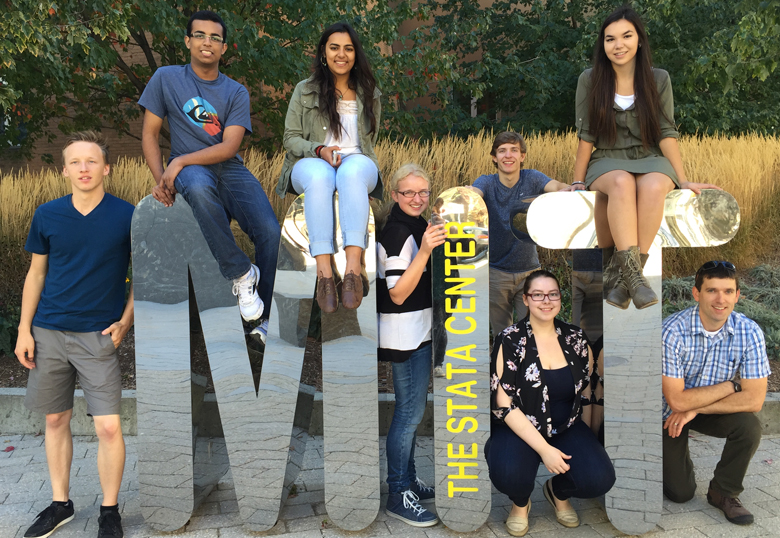 High school iGEM program grooming next generation scientists High school iGEM program grooming next generation scientists
For the past three years, the U of L has sponsored a high school iGEM team that has mirrored the success of its collegiate entry
The Prentice Institute for Global Population and Economy hosted several Brown Bag lectures including:
The Prentice Institute is currently revving up with the next line up of speakers, guest lectures and community café conversations for the winter session and have an exciting line up. All the upcoming events, acknowledgements and news can be found on their website, Twitter and LinkedIn accounts.
Go To Top
|
|
|
Students – what are they up to?
December 15, 2015 | 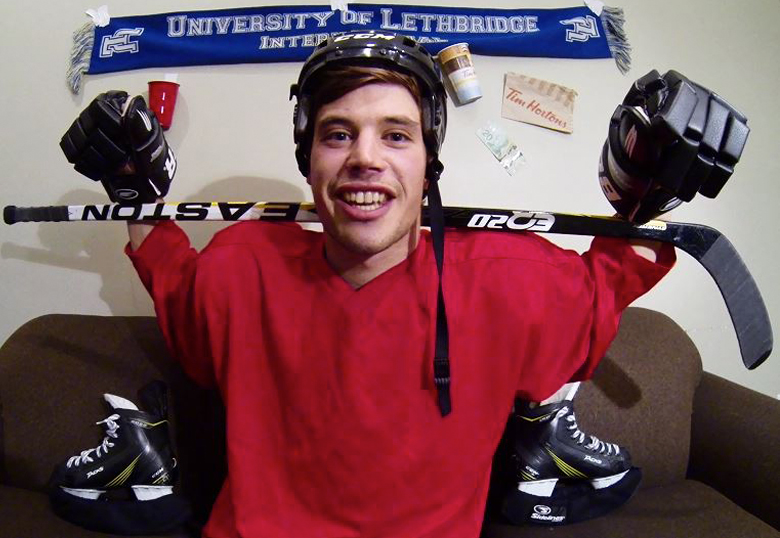 How Felix Schiel became Canadian How Felix Schiel became Canadian
Felix Schiel, an international student from Germany, created a video about how he became Canadian for a contest by the Canadian Bureau for International Education. He won.
December 11, 2015 | 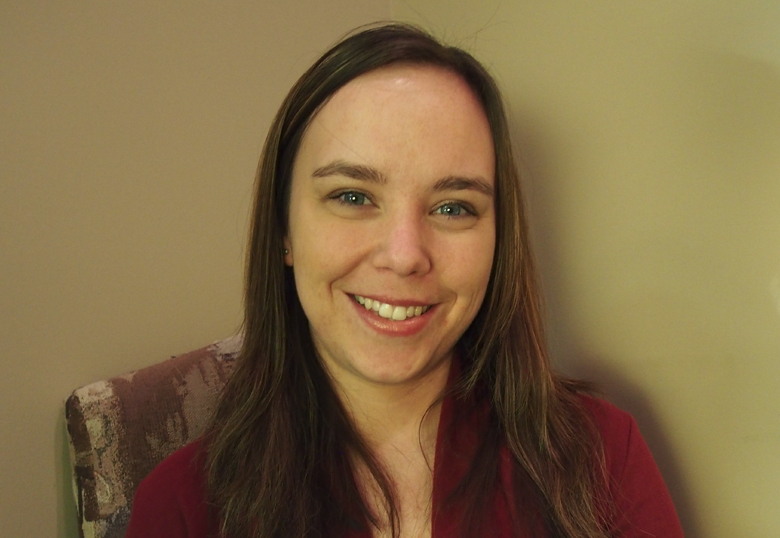 Essay on Zen Buddhist art nets student Michael Chan prize Essay on Zen Buddhist art nets student Michael Chan prize
Receiving the Michael Chan Prize in Asian Studies came as a pleasant surprise for Kaelah Collins (BA '15)
November 30, 2015 |
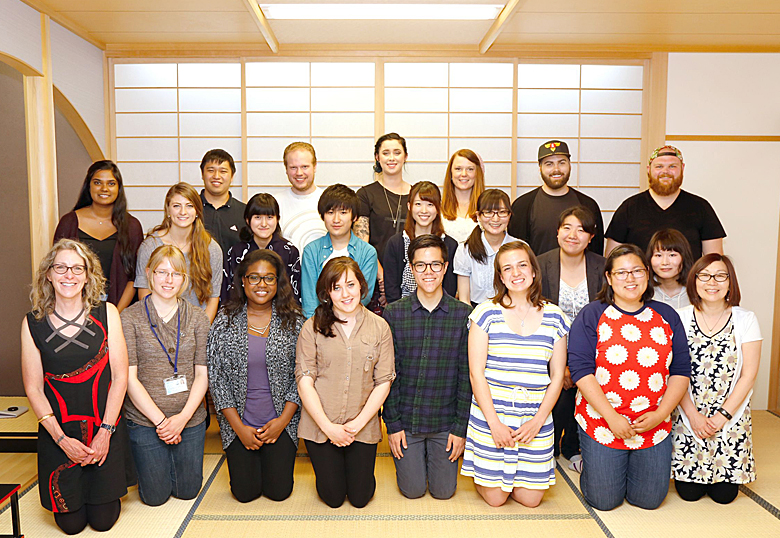 Study tour gives students direct cultural experience Study tour gives students direct cultural experience
Students gain firsthand knowledge of life in Japan through the Japan Study Tour
November 18, 2015 | U of L programmers lead Canadian schools at Rocky Mountain Regional
Students are given a series of complex, real-world problems that they must solve over a five-hour time period
November 5, 2015 | 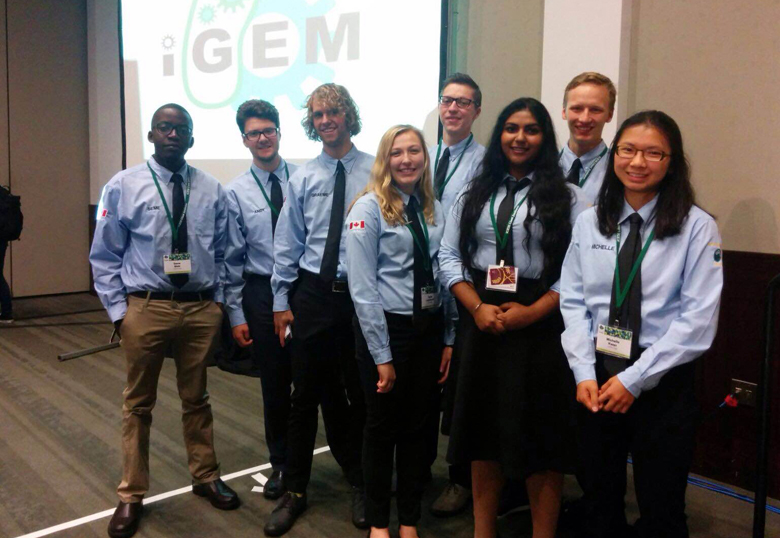 Gold-medal winning iGEM team may have answer for widespread agricultural problem Gold-medal winning iGEM team may have answer for widespread agricultural problem
iGEM 2015 The University of Lethbridge’s incomparable iGEM program achieved a gold medal standing at iGEM 2015 recently, debuting a project that may soon eradicate a widespread agricultural problem.
October 29, 2015 | 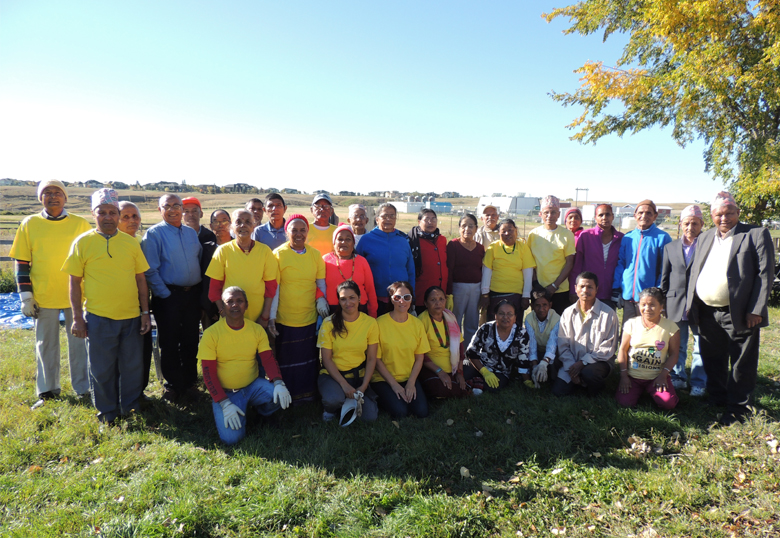 Applied study takes learning beyond the classroom Applied study takes learning beyond the classroom
An applied study course gave Erin Davis the opportunity to learn about the experiences of a group of Bhutanese seniors when they immigrated to Canada.
October 27, 2015 | Anastasia Sereda wins the SGS Graduate Citizenship Award
MA (WGST) student Anastasia Sereda was recently awarded the Graduate Citizenship Award valued at $2,000. This award recognizes graduate students who have demonstrated outstanding leadership and dedication to fellow students and their community.
October 19, 2015 | 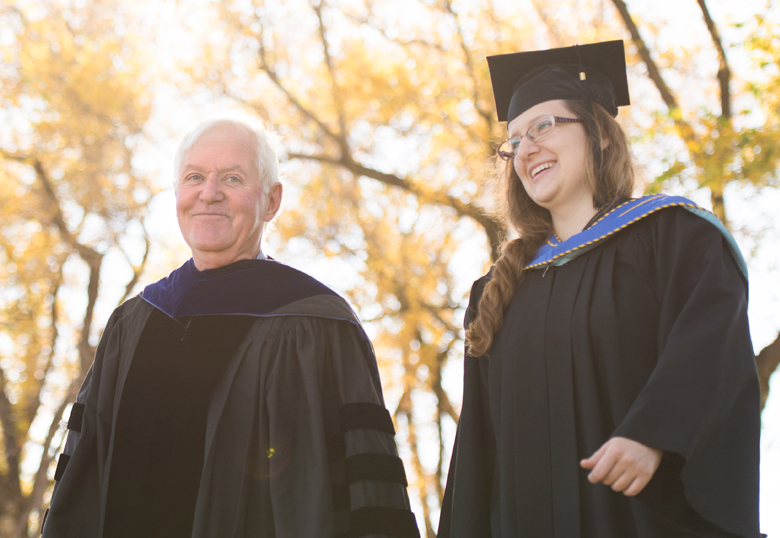 There's no place like the U of L for Anna Kovalchuk There's no place like the U of L for Anna Kovalchuk
Anna Kovalchuk plans to complete her PhD studies under the tutelage of Drs. Bryan Kolb and Robbin Gibb.
Notable Mentions
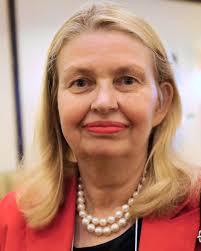 There's good news from California as Pronghorns men's basketball player Brent Watkins has been released from hospital following six months of recovery from a devastating car crash. Watkins, pictured above left, was joined by Brandon Brine over the Christmas break, as the two were even able to shoot some hoops. The California native still faces a year of rehabilitation but buoyed by the support of the Pronghorns and the extended U of L family and southern Alberta community, he has made great strides toward a full recovery. There's good news from California as Pronghorns men's basketball player Brent Watkins has been released from hospital following six months of recovery from a devastating car crash. Watkins, pictured above left, was joined by Brandon Brine over the Christmas break, as the two were even able to shoot some hoops. The California native still faces a year of rehabilitation but buoyed by the support of the Pronghorns and the extended U of L family and southern Alberta community, he has made great strides toward a full recovery.
MA (History) student Shannon Ingram had a conference paper recently accepted for an international conference titled Abortion and Reproductive Justice. This is sponsored by the Humanities Department at the University of Ulster and will take place in June 2016.
MA (NAS) student Leon Crane Bear’s article titled “The Contemporary Relevance of the Historical Treaties to Treaty Indian peoples” based on his MA thesis defended in August is forthcoming in the national e-journal, Activehistory.ca. Leon convocated in October 2015 and was co-supervised by Carol Williams & Linda Many Guns.
MA (WGST) student Prosper Asaana, who convocated in October 2015, is the first international, and first male, student to complete a graduate degree in Women & Gender Studies at the University of Lethbridge—His thesis is titled, Migrant Health Care Practices: The Perspectives of Women Head Porters in Ghana. He was supervised by Carol Williams, Suzanne Lenon and Jean Harrowing (HS)
MA (History) student Karissa Patton, who convocates in June 2016, won a 2015-2016 Bombardier Doctoral Fellowship in addition to a Dean’s Scholarship to attend the PhD program in History at the University of Saskatchewan.
Undergraduate student Diane McKenzie (BA Psychology & History) has co-authored with Dr. Carol Williams (WGST & History) and curator Wendy Aitkens (Galt Museum and Archives) a feature article for the January issue of Muse Magazine (published by the Canadian Museum Association). The article titled “Mentoring University Undergraduates in Public History: A Partnership with the Galt Museum & Archives” describes the experience of collaborating with the Galt Museum to produce an exhibition of original research by undergraduates taking the Women’s History class at the University of Lethbridge.
Zak Stinson and Scott Wong (both NSERC CREATE BIP trainees), along with Aubrey Demchuk and Evan Caton, have been very successful with their new business "Nomadogen Biotechnologies Inc.", winning the Chinook Entrepreneur Challenge Award in the Technology and Innovation Business Stream, and Student Business Stream. This was reported in UNews and the Lethbridge Herald in August 2015.
|
|
|
Research Round-up
December 22, 2015 | New U of L website highlights Alberta's warming climate
A new, interactive online database developed at the University of Lethbridge provides easy access to climate records from 1950 to 2010 for the province of Alberta.
December 9, 2015 | 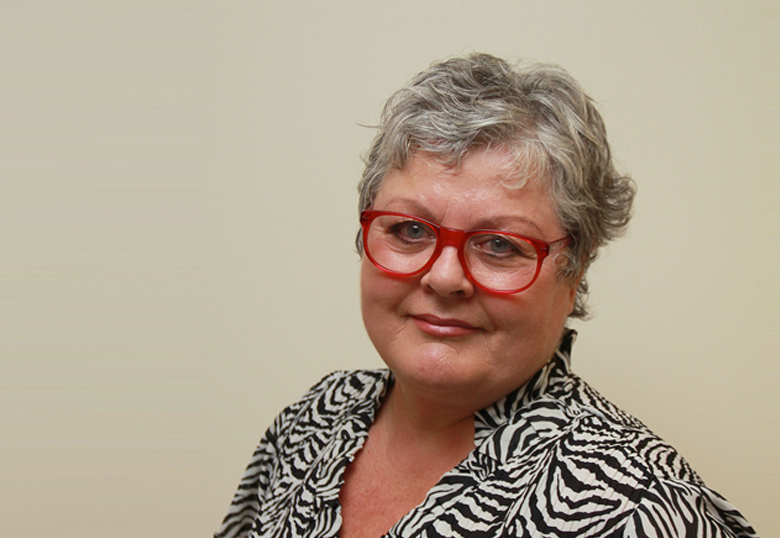 Malacrida appointed Associate Vice-President (Research) Malacrida appointed Associate Vice-President (Research)
The University of Lethbridge Board of Governors has appointed Dr. Claudia Malacrida, one of Canada’s leading sociologists, as the new Associate Vice-President (Research).
December 7, 2015 | 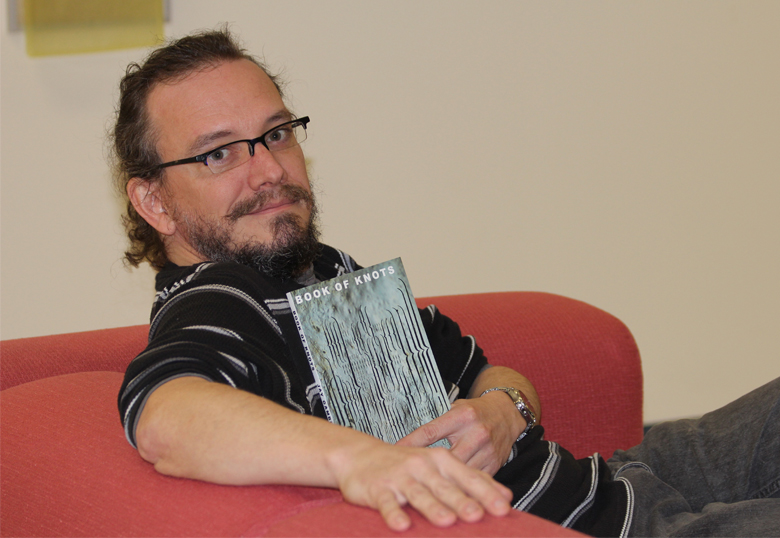 Book of Knots explores nothingness Book of Knots explores nothingness
Dr. Jay Gamble's new book of poetry challenges traditional poetry conventions
November 12, 2015 | $2.5 million SSHRC award to support examination of fossil fuel industry in Western Canada
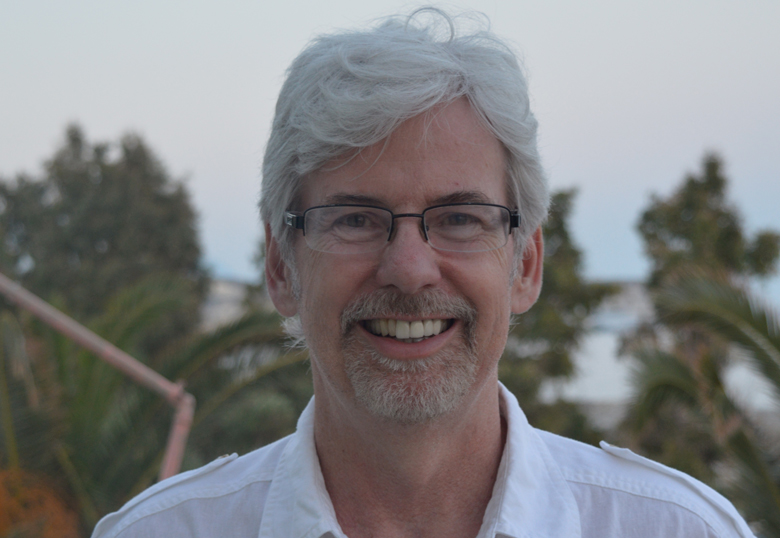 Mapping the Power of the Carbon-Extractive Corporate Resource Sector is an initiative that will bring together researchers, civil society organizations and Aboriginal participants. Dr. Trevor Harrison is Director of the Parkland Institute. Mapping the Power of the Carbon-Extractive Corporate Resource Sector is an initiative that will bring together researchers, civil society organizations and Aboriginal participants. Dr. Trevor Harrison is Director of the Parkland Institute.
November 10, 2015 | 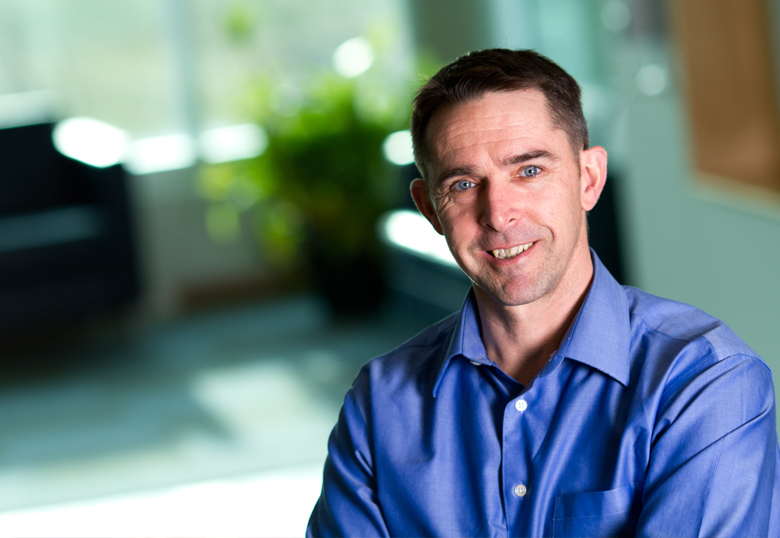 Hopkinson continues to explore at the U of L Hopkinson continues to explore at the U of L
Dr. Chris Hopkinson named one of Canada's greatest explorers
October 16, 2015 | 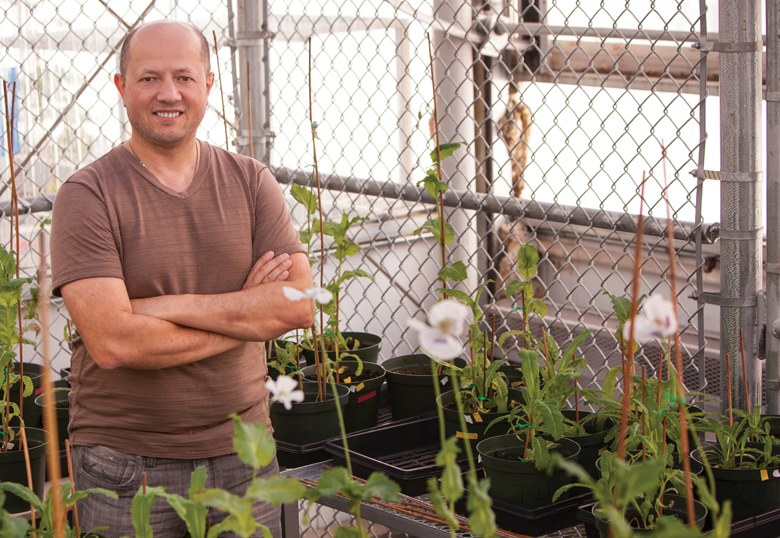 University honours Dr. Igor Kovalchuk with Speaker Research Award University honours Dr. Igor Kovalchuk with Speaker Research Award
Kovalchuk is recognized as a pioneering researcher at the forefront of plant genome stability and the burgeoning field of epigenetics
October 14, 2015 | Heather Ladd awarded Moore Institute Research Visiting Fellowship
Dr. Ladd will go to the National University of Ireland, Galway in summer 2016
October 8, 2015 | Expert in American water law to study Alberta’s water rules as Fulbright Visiting Research Chair at the U of L
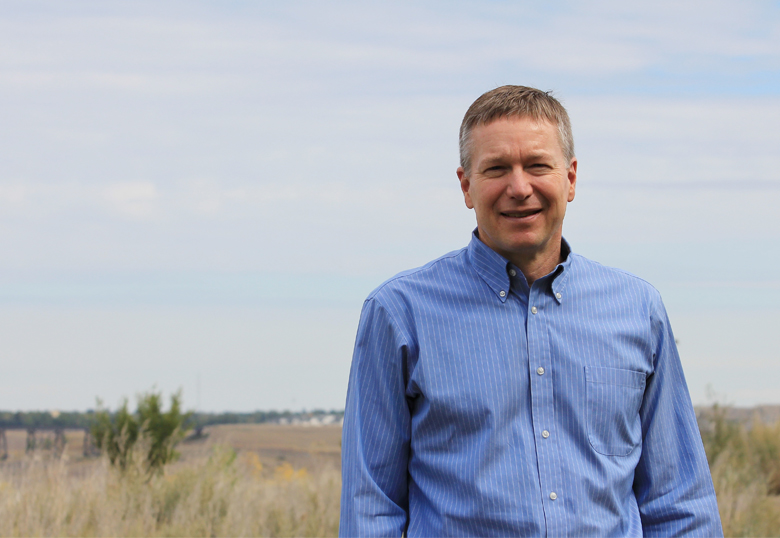 Does Alberta have flexible ways to revise water management plans? Dr. Reed Benson aims to find out Does Alberta have flexible ways to revise water management plans? Dr. Reed Benson aims to find out
Notable Mentions
Carol Williams, Associate Professor in WGST and the History Department, is recipient of two research awards for 2016: 2016-2017 Florence Ellen Bell Scholars Award for ongoing research in the United Methodist Archive Collections at Drew University in Madison, New Jersey and the 2015-2016 Parkland Faculty Award for ongoing research on the history of anti-abortion activism in Southern Alberta 1960-2000.
 In partnership with Campus Alberta Neuroscience, NSERC CREATE BIP, NeuroInvestigations Inc., and the Canadian Centre for Behavioural Neuroscience (CCBN) at the University of Lethbridge held the 2nd annual Introductory Workshop on Computational Methods in Neuroscience. From June 10–19, 27 Alberta trainees — including one from Saskatchewan and three from the United States — gathered to learn cutting-edge computational data analysis approaches from some of Alberta's top researchers in the field. This workshop will be offered again in June 2016. In partnership with Campus Alberta Neuroscience, NSERC CREATE BIP, NeuroInvestigations Inc., and the Canadian Centre for Behavioural Neuroscience (CCBN) at the University of Lethbridge held the 2nd annual Introductory Workshop on Computational Methods in Neuroscience. From June 10–19, 27 Alberta trainees — including one from Saskatchewan and three from the United States — gathered to learn cutting-edge computational data analysis approaches from some of Alberta's top researchers in the field. This workshop will be offered again in June 2016.
 Dr. Steve Ferzacca, a professor in the Department of Anthropology, recently performed at Singapore's world-renowned venue, The Esplanade, as a performance element in a collaborative, ethnographic project with original members of the 1960s blues rock band, The Straydogs. Read the complete story here. Dr. Steve Ferzacca, a professor in the Department of Anthropology, recently performed at Singapore's world-renowned venue, The Esplanade, as a performance element in a collaborative, ethnographic project with original members of the 1960s blues rock band, The Straydogs. Read the complete story here.
Go To Top
|
|
|
Campus Life
January 7, 2015 | 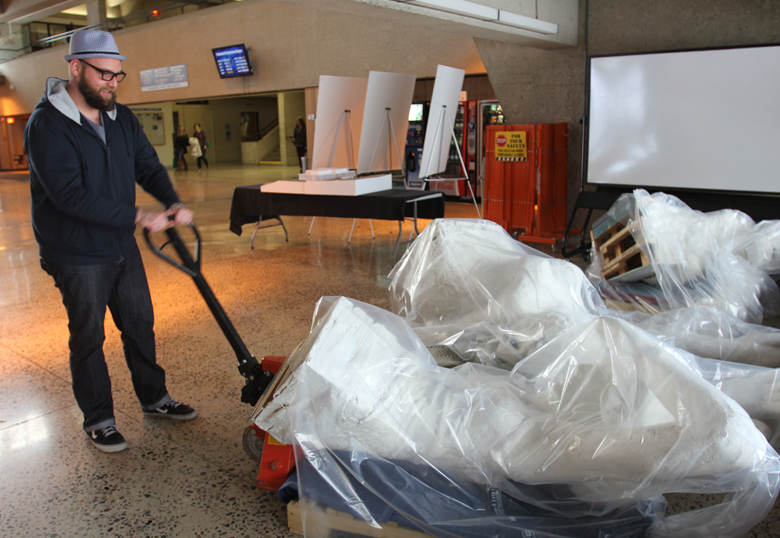 Iconic maquette statues temporarily removed for safety reasons Iconic maquette statues temporarily removed for safety reasons
Students and Art Gallery staff will clean and make any necessary repairs to the maquette statues while they wait for reinstallation
December 21, 2015 | University adds to graduate programming with two new PhD offerings
The University of Lethbridge is pleased to announce two new doctoral degree programs slated to begin in September 2016, the first of their kind in the school’s history.
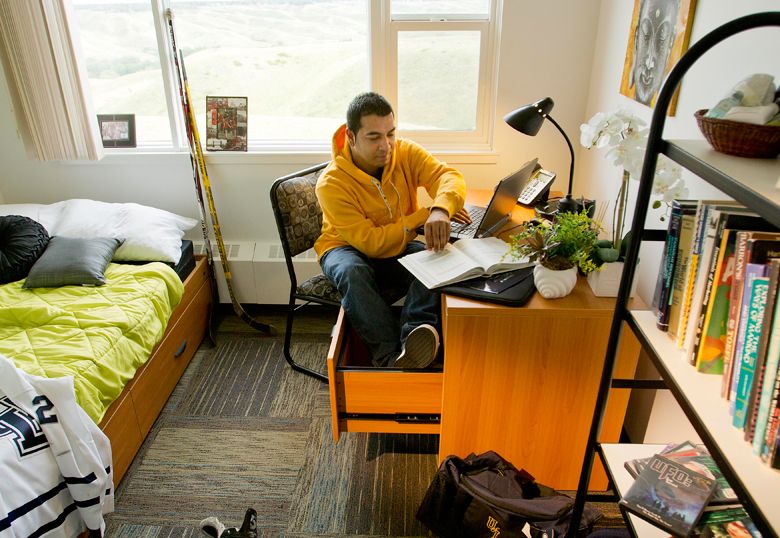
December 15, 2015 | Fall reading break approved for 2016
Mental health and well-being of students is at the heart of implementing a new fall study break. The 2016 break will run Nov. 7-10.
November 23, 2015 |  Department of History recognized with new SOS honour Department of History recognized with new SOS honour
The U of L’s Department of Hstory has had 100 per cent participation in the SOS campaign for seven consecutive years
October 29, 2015 | 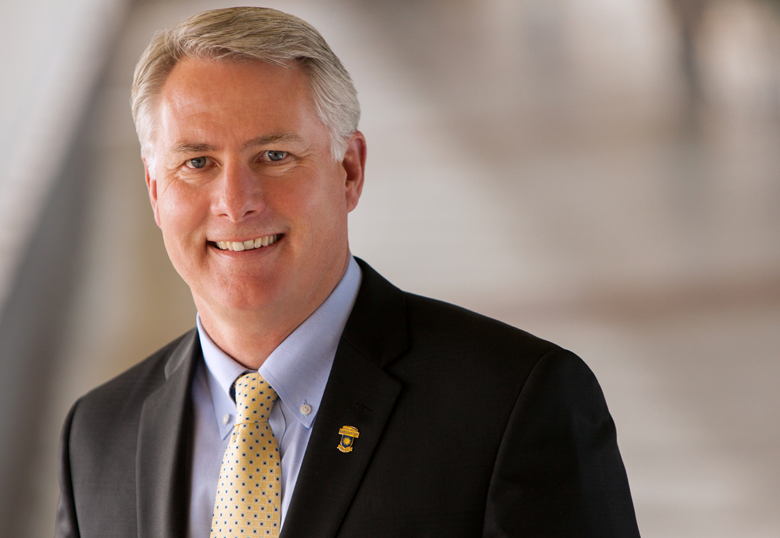 Maclean’s University Rankings mark University of Lethbridge as one of Canada’s best Maclean’s University Rankings mark University of Lethbridge as one of Canada’s best
The University of Lethbridge earned a third place national ranking in the Primarily Undergraduate category of the annual Maclean’s University Rankings
October 22, 2015 |  Bonifacio named one of the most influential Filipina women in the world Bonifacio named one of the most influential Filipina women in the world
University of Lethbridge professor Dr. Glenda Bonifacio has been selected to receive the 100 Most Influential Filipina Women in the World Award in the Innovator and Thought Leader category.
October 19, 2015 | 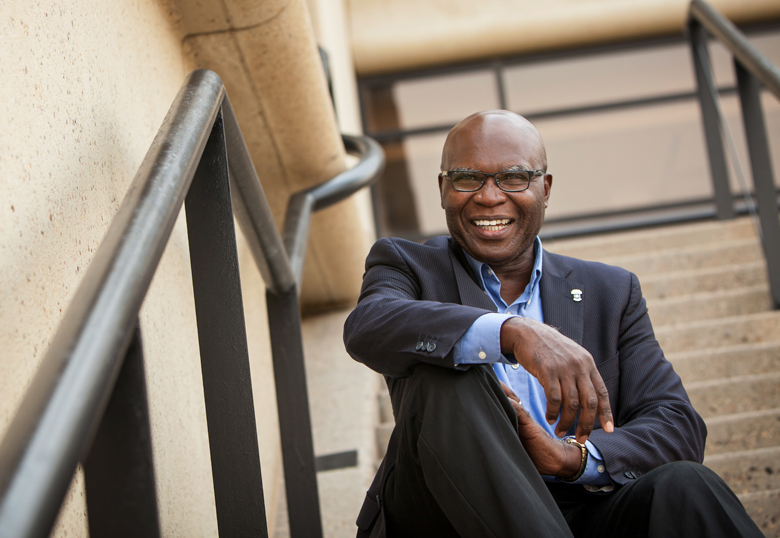 5 Questions with Dr. Erasmus Okine 5 Questions with Dr. Erasmus Okine
Dr. Erasmus Okine is settling into his new role as vice-president (research).
October 19, 2015 | U of L jumps in Research Infosource ranking
The U of L jumped from fifth to fourth in the country in the 2015 Undergraduate classification and to 35th overall in the country
Notable Mentions
The KNES 2140 Management Perspectives class learned to put event management theory into practice. They organized a Pink in the Rink event for a Pronghorns Women's Hockey home game on November 14, 2015. The event was a huge success by attracting a record 400 spectators and raising $3,000 for the Canadian Breast Cancer Foundation. This class is taught by Dr. Mary Dyck.
Events
The Department of Physics & Astronomy will be hosting the SPIRE ICC Post-ops Meeting on campus from February 16-19, 2016. For more details, please visit the website.
Go to Top
|
|
|
Alumni Success
History alumna Terra Plato (BA '99) was recognized as one of Lethbridge's Top 40 Under Forty. She is currently the CEO of the Lethbridge Public Library and is responsible for the administration and direction of the LPL and its branch operations.
November 30, 2015 | Wolf Child sees knowledge as a gift that should be passed on
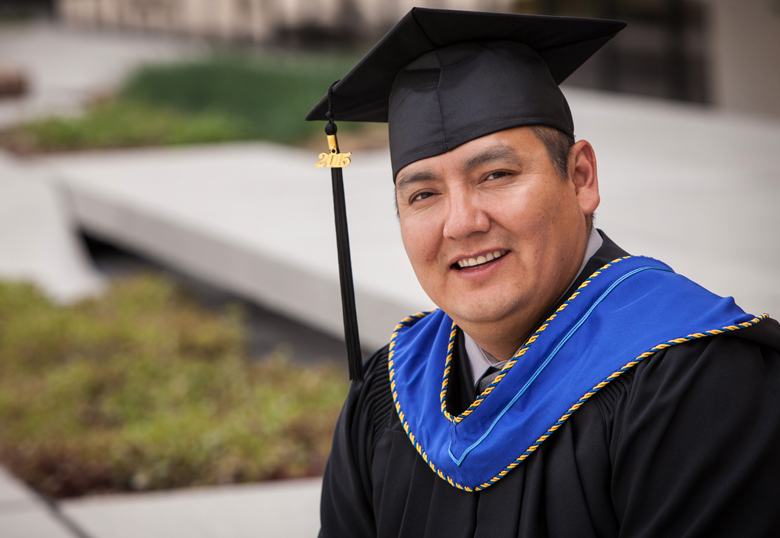 Now a teacher at Old Sun Community College, Eddie Wolf Child also helped found the Siksika Youth Movement. Now a teacher at Old Sun Community College, Eddie Wolf Child also helped found the Siksika Youth Movement.
November 30, 2015 |  Wendy Sloboda - the dinosaur hunter Wendy Sloboda - the dinosaur hunter
Wendy Sloboda’s ability to find dinosaur fossils has earned her international recognition in her field and invitations to join paleontological expeditions in Mongolia, Greenland, Argentina, France and the U.S.
Go To Top
|
|
|
|
|
|